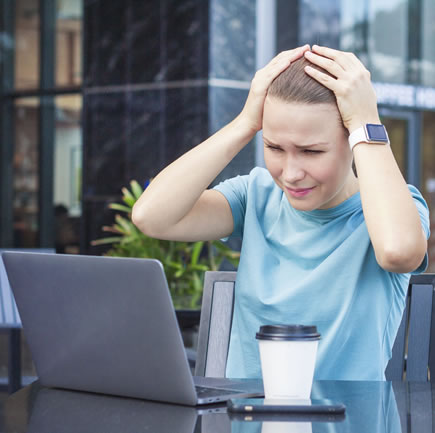Dr. Mike,
The last few months have been hard for me with coronavirus. I work in my home office all day now and haven’t been to work since late March. I haven’t seen a single friend. I’ve gained 15 pounds. I’m drinking too much, and I can’t even remember the last time I worked out with my gym closing. I’m around my children and husband (who also works from home) all the time, which I guess should feel good but it doesn’t way too often. I don’t have energy. I feel sad most of the time, and I lay awake at night worrying about all the things I need to get done but can’t. I’ve never been depressed before, but I think I am and I don’t know what to do. My husband is a good man, but he just wants me to “snap out of it,” and I can’t. I know I live in a bubble in Ashburn, and I have so much more than so many other people in the world, so what’s wrong with me, and why do I still feel so depressed? Help.
Upset in Loudoun

Dear Upset in Loudoun,
First of all, please know that pandemic fatigue and depression is a very real condition. Unaddressed or untreated situational depression can range from the mild blues to more severe symptoms (e.g., hopelessness, suicide). Second, please also know that there’s nothing wrong with you and try not to be too hard on yourself. Depression doesn’t discriminate across socioeconomics, race or age; you can be rich or poor, black or white and young or old and still become depressed. Third, please also know that you are not alone. The preliminary research on COVID-19 and mental health conditions has not surprisingly shown a significant increase in depression, as well as other mental health conditions in the US, since the start of COVID-19.
Based on the problems you’ve listed, you seem to be overwhelmed across several areas of your life, so I recommend that you try to get control over one thing first, and I would tackle something that isn’t too hard. For example, you write that you haven’t seen any friends since March, so perhaps this is a good time to reach out to some friends on-line or over the phone or to get together in person with social distancing in mind. Or, you might decide to drink only on the weekends or to take a break from alcohol altogether for a month. Carving out some alone time every day or several times a week may also help you to feel like you are more in control of things. Getting your husband to appreciate where you are emotionally and getting additional support from him as needed, will also likely help you to begin feel better.
Situational depression often goes away on its own and over time when the main stressors you’ve had difficulty adjusting to become more manageable. However, if you’re not feeling better within a reasonable period of time with increased effort, or if your emotional state worsens, I recommend that you meet with a mental health professional that specializes in treating depression. Research has shown that both cognitive behavior therapy and interpersonal therapy are extremely effectives treatments for depression.


